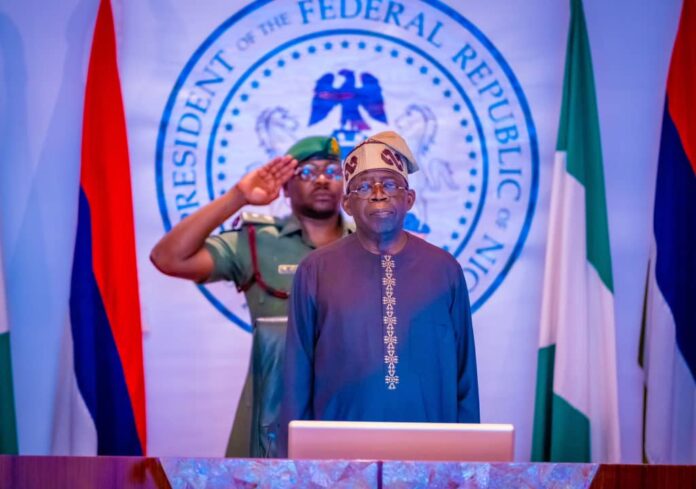The Federal Government has commended President Bola Tinubu’s economic policies, describing them as transformative and responsible for steering the country towards recovery and growth.
Minister of Budget and Economic Planning, Atiku Bagudu, said Nigeria’s economy has begun to show strong signs of improvement due to bold reforms, enhanced coordination, and a renewed focus on national priorities introduced in the past two years.
“This is two years well spent,” Bagudu stated during a feature interview for a documentary set to air in celebration of President Tinubu’s second anniversary in office on May 29, 2025.
The details of the interview were disclosed in a statement released by Tinubu’s Special Adviser on Information and Strategy, Bayo Onanuga, titled ‘Economic Reforms Deliver Growth, Spur Investor Confidence: Bagudu’.
According to Bagudu, President Tinubu tackled Nigeria’s economic challenges head-on through decisive and sometimes difficult policy changes that are now producing measurable results.
He cited the Renewed Hope Agenda as instrumental in restoring investor trust and driving momentum across various sectors.
He revealed that the economy has experienced four straight quarters of growth, a stabilised foreign exchange rate, and renewed private sector interest.
“We have seen successive quarterly GDP growth, improvement in forex stability, and positive responses from rating agencies and the international community,” he said.
The Minister noted that investor confidence—both foreign and domestic—has been rekindled, especially in key sectors like agriculture, energy, and infrastructure.
He mentioned countries like Brazil, Belarus, and Saudi Arabia as examples of international players making fresh inroads into Nigeria’s agricultural landscape.
Bagudu attributed this renewed investor interest to the administration’s emphasis on transparency, credibility, and structural reform.
“Investors want to know if policies are sound, if repayment is assured, and whether the economic data is reliable,” he said, adding that consistent GDP growth signals credibility to the global market.
Highlighting one of the administration’s landmark achievements, Bagudu noted that Nigeria is refining petroleum locally for the first time in 25 years, thanks to a policy shift that allows crude oil to be sold in naira to domestic refiners—a move he said reflects President Tinubu’s faith in local capacity.
He further praised the removal of fuel subsidies and the unification of the foreign exchange market as critical steps that restored fiscal discipline.
“Fuel subsidies cost us 5% of our GDP, benefitting only a few. Removing it was a bold decision,” he said. “Similarly, ending multiple exchange rates eliminated favouritism and brought about a more transparent forex regime.”
The Minister explained that the 2024 and 2025 federal budgets were designed to strike a balance between responsible spending and strategic investment, particularly in health, education, infrastructure, security, and technology.

